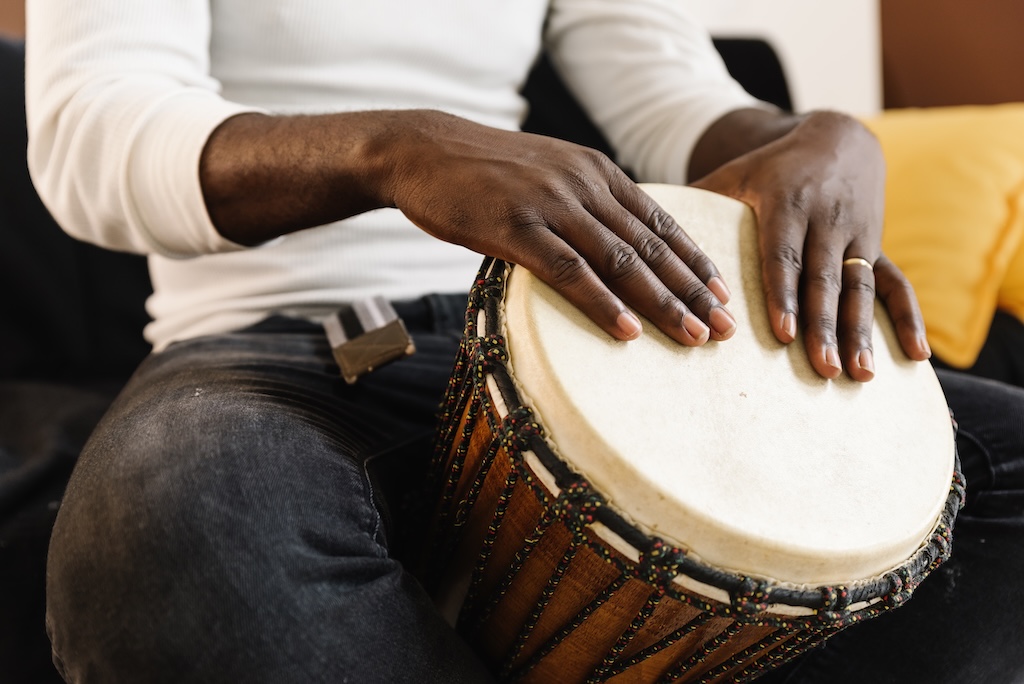Visit Us
Get Directions

Experiential therapy is a hands-on approach to healing that helps individuals process emotions, past experiences, and unresolved trauma in ways that feel more natural and engaging. Unlike traditional therapy, which relies on conversation, this method encourages expression through action—art, movement, role-playing, or connecting with animals.
Many people uncover deep-seated emotions or behavioral patterns they weren’t even aware of—leading to powerful insights and lasting transformation.
Healing doesn’t just happen in the mind—it happens through experience.
Experiential therapy activities vary depending on the individual needs of the client, but generally involve activities that allow for an expression of thoughts, feelings and behaviors. These activities can include art, music, drama, movement or role-play.
Art therapy might involve painting or drawing as a way to express an emotion without having to verbalize it.
Music therapy can be used to explore the feelings associated with particular songs or melodies.
Drama therapy may involve improvisation roles that allow an individual to observe their own behavior and emotions in a new light.
Movement therapy activities might include yoga, tai chi, or other forms of physical activity as a way to explore the body’s connection to emotions.
Role-Play activities can be used to simulate real-life situations in order to gain insight into how a person might act or react in a certain situation.
Hiking can provide an opportunity to explore the natural environment and use elements of nature for relaxation or emotional exploration.
Group sharing exercises activities such as storytelling, journaling, or group discussions can be used to increase interpersonal connections and understanding.
These types of activities can help individuals better understand their emotions and develop healthier coping mechanisms in order to lead a more fulfilling life. Experiential therapy is an effective way to explore the mind-body connection and gain insight into how our thoughts, feelings and behaviors are interconnected. It is a powerful tool for helping individuals find healing and inner peace.
If you or a loved one are searching for a rehab in San Bernardino that offers unique treatment modalities such as experiential therapy, Benchmark Transitions is the perfect place for you. Contact our admissions team today to learn more about how we can support you on your journey.
Experiential therapy at Benchmark Transitions provides a hands-on approach to healing, creating opportunities for real-world emotional breakthroughs. This approach helps individuals address deep-seated emotions, trauma, and behavioral patterns in ways that traditional talk therapy may not fully reach. By engaging in structured activities, clients can unlock emotions, build resilience, and develop healthier coping strategies.

Healing isn’t just about the mind—it involves the body and emotions as well. Experiential therapy engages individuals on multiple levels, incorporating physical movement, emotional expression, and cognitive processing. This whole-person approach ensures that healing is not just an intellectual exercise but a lived experience.

Some emotions are difficult to articulate with words alone. Experiential therapy offers alternative forms of expression through movement, creative arts, and interactive exercises. Whether through painting, music, role-playing, or nature-based activities, clients often find it easier to communicate and process their feelings in a more natural and intuitive way.

Unresolved trauma can feel overwhelming, but experiential therapy provides a safe environment to process past experiences in a controlled and guided manner. Through structured activities, individuals can revisit emotions without feeling consumed by them, allowing for healing without retraumatization.

Hands-on experiences help individuals recognize their strengths and develop a sense of empowerment. Whether completing a challenging outdoor activity, forming a bond with an animal, or expressing emotions through art, these activities foster self-discovery and resilience. By experiencing small victories, clients gain confidence in navigating life’s challenges.
If you or a loved one is struggling with substance use or mental health issues and looking for treatment, contact Benchmark Transitions today. Our admissions specialists are here to help verify your insurance coverage and determine which level of support is best for you.
At Benchmark Transitions, we integrate experiential therapy into our residential treatment program, allowing clients to step away from daily stressors and focus entirely on their healing.
Experiential therapy reshapes how clients see themselves, their past experiences, and their path forward.
Experiential therapy takes many forms; each session is tailored to fit the individual.

Spending time with horses and other on-site animals can be a profoundly calming and enriching experience. Horses, in particular, are known for their sensitivity to human emotions, making them a unique source of comfort and connection. Whether through caretaking, observation, or simple presence, engaging with them can foster trust, patience, and emotional awareness.

Movement in nature, such as hiking, rope courses, or team-building exercises, helps clients develop resilience, self-confidence, and problem-solving skills. These experiences create powerful metaphors for overcoming challenges and promoting personal growth.

For those who struggle to express emotions through words, creative outlets like painting, drawing, sculpting, or playing music provide a way to explore and process feelings in a non-verbal manner. Many clients discover new aspects of themselves through artistic expression.

Clients re-enact significant life experiences through structured group role-playing exercises or step into different perspectives. This method allows them to process unresolved emotions in a safe, supportive setting while gaining deeper insight into past experiences.

Mindfulness-based movement practices, such as yoga, tai chi, and guided meditation, help clients reconnect with their bodies, reduce stress, and develop emotional awareness. These activities promote calmness, focus, and emotional balance.

Writing is a powerful tool for self-reflection and emotional release. Through journaling, guided prompts, and narrative exercises, expressive writing therapy helps clients explore their thoughts and feelings. It is especially beneficial for those who struggle to verbalize emotions but find clarity through writing.
Experiential therapy offers unique advantages that complement traditional methods, leading to deeper emotional processing and personal breakthroughs.

Experiential therapy at Benchmark Transitions isn’t just an alternative—it’s a dynamic and transformative approach to healing. Combining action with emotional exploration helps individuals reconnect with themselves and develop the tools they need to move forward.
If you’re ready to break free from past trauma, emotional roadblocks, or mental health challenges, experiential therapy can offer the support and insight you need.
At Benchmark Transitions, healing happens through action, experience, and connection. Contact us today to learn more about our immersive, comprehensive treatment programs. Let’s take the next step together.
Eddie is a licensed Marriage and Family Therapist (LMFT) and Certified Drug and Alcohol Counselor with over 13 years of sobriety. His academic journey began at East Los Angeles College, where he obtained his certification in Drug and Alcohol Counseling, and continued to Antioch University Los Angeles, where he earned a Master’s degree in Clinical Psychology, specializing in addiction. Certified with both CCAPP and CAADE, Eddie employs a multi-modal approach in his practice, including DBT, CBT, and solution-focused therapy, to address addiction and co-occurring mental health disorders.
Meet Eddie